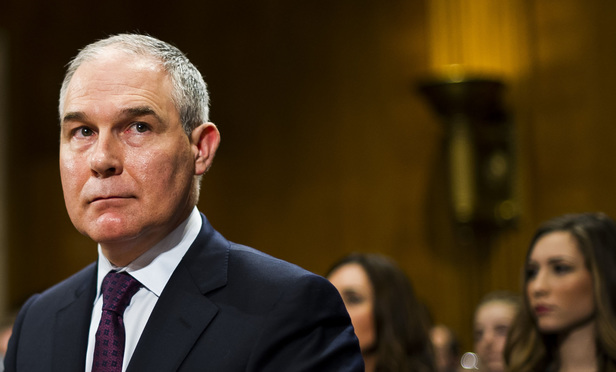When the Occupational Safety and Health Administration proposed requiring employers to submit information about workplace injuries and illnesses to a public database, the National Retail Federation raised concerns that unions would use the data to “pursue a more aggressive organizing agenda.”
Sysco Corp. asked the agency how it would address “employer risk of loss to their reputation, financial standing, and legal exposure if injury and illness information is inaccurately reported or improperly disclosed or used.” Delta Airlines said it was “concerned that this proposal is overly burdensome and will add little value,” while also voicing worries about how OSHA would “scrub” the data and protect workers’ privacy.
The rule was finalized in 2016 and took effect Jan. 1, with a July 1 deadline for reports. But OSHA never set up a website to receive the reports and has since pushed the deadline to Dec. 1, saying it “intends to issue a separate proposal to reconsider, revise, or remove other provisions of the prior final rule.”
As the Cincinnati-based Riverfront Steel Inc. noted in a July 10 comment, “The rule should be delayed for obvious reasons, the government isn’t even set up to accept the filings as of this date.” (OSHA later announced it would launch an application to receive injury data on Aug. 1.)
Industry groups welcomed the delayed deadline—but the U.S. Chamber of Commerce wasn’t entirely satisfied. The chamber said “employers would be better served” by OSHA indefinitely staying the rule.
“Merely delaying the submission of these reports suggests OSHA will activate the requirement on Dec. 1. Employers will begin preparing to submit their forms months ahead of that date. If OSHA then concludes, through the comprehensive rulemaking, to rescind this requirement, then employers will have spent their resources for no purpose,” the chamber wrote in a letter to the agency.
Delay at the FDA ‘Upends Plans’
Indeed, some delays have come on such short notice that companies had no chance of saving on compliance costs.
Just days before it was set to take effect, the U.S. Food and Drug Administration delayed a regulation requiring calorie totals to be posted on menus at chain restaurants, along with grocery stores and some convenience stores. The rule is now slated to take effect in May 2018.
In a recent letter, the grocery chain Publix said it had worked the past three years to develop a “best-in-class” program to comply with the rule. The company recommended that the FDA use the delay to revise the rule to allow more flexibility with font sizes and exempt menu items meant to serve multiple people.
Another sector affected by the rule, the restaurant industry, was “irate about the 11th-hour change,” Politico reported.
“This delay upends plans that have been in motion for years throughout the food industry,” said Cicely Simpson, executive vice president for government affairs at the National Restaurant Association.
EPA’s Delay Hits a Snag in Court
The Trump administration’s delay tactic is actually a shortcut of sorts. The approach avoids the more arduous path of rolling back rules through a formal rulemaking process that requires agencies to justify the repeal, just as they must support implementing new regulations.
One delay has already run up against judicial resistance.
On July 3, a divided three-judge panel of the U.S. Court of Appeals for the D.C. Circuit blocked a decision by Scott Pruitt, administrator of the Environmental Protection Agency, to delay a rule requiring reductions of methane and other greenhouse gas emissions. Several environmental groups had filed an emergency request to vacate the EPA’s decision to partially halt the methane rule for 90 days.
“This is a big win for public health and a wake-up call for this administration,” Tim Ballo, an attorney at Earthjustice who represented some of the environmental groups, said in response to the 2-1 decision. “While Scott Pruitt and Donald Trump continue to bend over backwards to do the bidding of Big Oil, Earthjustice and our clients and partners will use every tool at our disposal to hold them fully accountable for their actions.”
Lawsuits against delays and repeals could be on the way.
In response to Trump’s executive order directing agencies to eliminate two existing rules for every new regulation introduced, public interest groups including Public Citizen and the Natural Resources Defense Council filed a lawsuit alleging that the policy would do more harm than good and roll back regulations that have a net benefit for society in spite of their compliance costs.
“The executive order will block or force the repeal of regulations needed to protect health, safety, and the environment, across a broad range of topics—from automobile safety, to occupational health, to air pollution, to endangered species,” the groups said in their February complaint.






